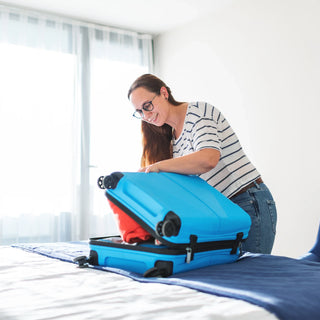After supporting his wife when she went through breast cancer, Fraser Cartwright understands first-hand how important volunteers are to a cancer journey.
So when he retired, he decided to volunteer as a driver for the Canadian Cancer Society (CCS) Wheels of Hope service — an initiative that you support with your gift to fund our Transportation Program. This program provides transportation for people with cancer who need help getting to and from their cancer care.
“Cancer can dominate your life,” says Fraser. “The last thing people going through treatment need to worry about is transportation.”
When the pandemic first began, the program was temporarily suspended to keep people safe until new protocols could be introduced. Fraser decided to pour his energies into helping CCS build COVID-19 safety measures into a revised training manual for drivers.
“It demanded a bit of introspection to consider how we can ensure a safe, caring and friendly experience for people who use Wheels of Hope and why the retraining was an essential part of getting us back on the road,” he says.
Now that the new measures are in place and the program is back in gear, Fraser says he is reminded how powerful a human connection is during a challenging time.
“Relieving people's anxiety about getting to and from their treatment is priceless,” says Fraser. “I’m not a medical practitioner, but I am an empathetic listener and a friend.”
So when he retired, he decided to volunteer as a driver for the Canadian Cancer Society (CCS) Wheels of Hope service — an initiative that you support with your gift to fund our Transportation Program. This program provides transportation for people with cancer who need help getting to and from their cancer care.
“Cancer can dominate your life,” says Fraser. “The last thing people going through treatment need to worry about is transportation.”
When the pandemic first began, the program was temporarily suspended to keep people safe until new protocols could be introduced. Fraser decided to pour his energies into helping CCS build COVID-19 safety measures into a revised training manual for drivers.
“It demanded a bit of introspection to consider how we can ensure a safe, caring and friendly experience for people who use Wheels of Hope and why the retraining was an essential part of getting us back on the road,” he says.
Now that the new measures are in place and the program is back in gear, Fraser says he is reminded how powerful a human connection is during a challenging time.
“Relieving people's anxiety about getting to and from their treatment is priceless,” says Fraser. “I’m not a medical practitioner, but I am an empathetic listener and a friend.”









